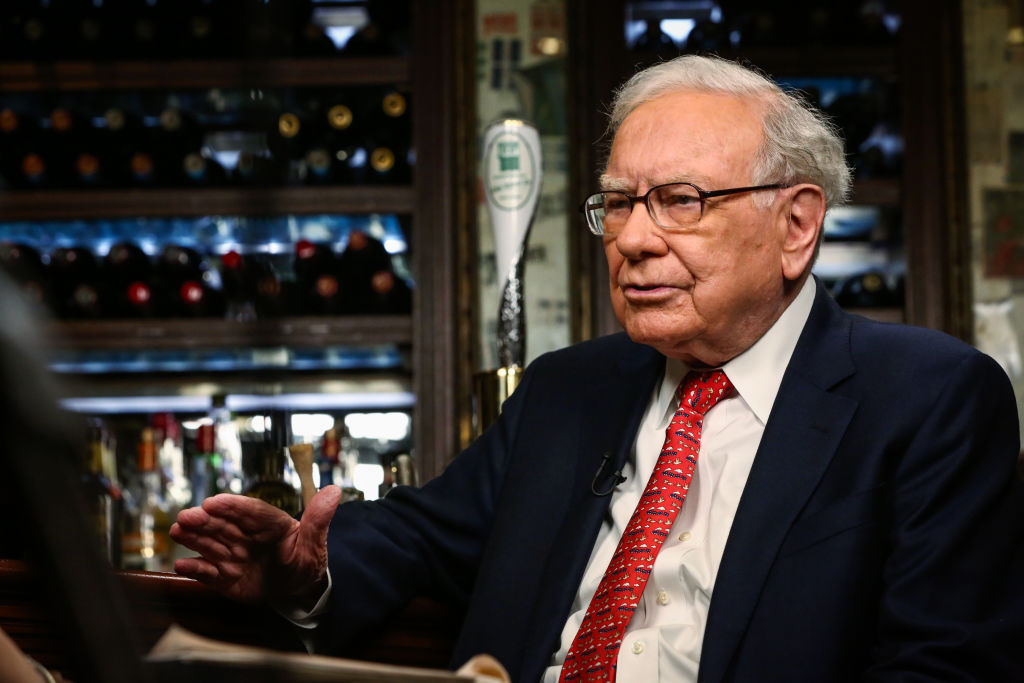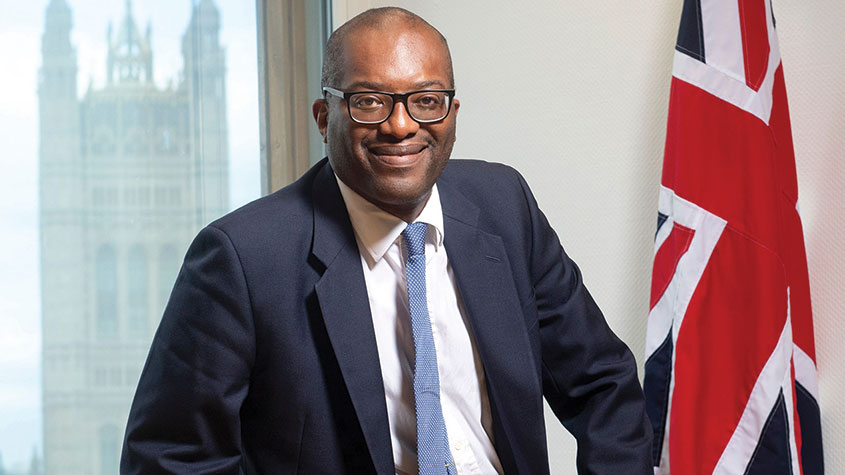Chase Coleman: star hedgie hits the panic button
Chase Coleman got off to a sizzling start in the hedge-fund industry and became one of the biggest winners of the tech bull market. His fall from grace has been brutal.

Get the latest financial news, insights and expert analysis from our award-winning MoneyWeek team, to help you understand what really matters when it comes to your finances.
You are now subscribed
Your newsletter sign-up was successful
Want to add more newsletters?

Twice daily
MoneyWeek
Get the latest financial news, insights and expert analysis from our award-winning MoneyWeek team, to help you understand what really matters when it comes to your finances.

Four times a week
Look After My Bills
Sign up to our free money-saving newsletter, filled with the latest news and expert advice to help you find the best tips and deals for managing your bills. Start saving today!
The New York hedge-fund star Chase Coleman once observed that “the person who does best is the one with the panic button furthest from his keyboard”. The line was typical of his suave persona as one of Wall Street’s most quietly effective operators. But even Coleman must have felt his arm stretching ever closer to the button of late. “If you owned growth stocks this year… you got your face ripped off,” says a fellow tech-focused fund manager. Coleman’s disfigurement was worse than most. His Tiger Global fund “has become the highest-profile casualty of the tech stock hammering”, says the Financial Times. It has lost around $20bn since the end of last year.
No excuses
The most prominent of the “Tiger Cubs” – an “elite club” of financiers who cut their teeth at Julian Robertson’s Tiger Management in the 1990s – Coleman, 46, was one of the biggest winners of the tech bull market: his flagship fund delivered compound annual returns of 21% over 20 years. Now some “two-thirds of the dollar gains made for investors since its 2001 launch” have been erased. In an attempt to limit further losses, the fund “slashed or dumped” holdings in stocks including Netflix and Airbnb last week. True to his habit of rarely giving interviews, Coleman kept his remarks about the mauling brief. “Markets have not been co-operative given the macroeconomic backdrop,” he wrote to investors. “But we do not believe in excuses and so will not offer any.”
Coleman was born in 1975 and raised in affluent Glen Head on Long Island. His father was a partner at an historic New York law firm, Pillsbury Winthrop Shaw Pittman, and his mother was an interior designer. But his “vaulted pedigree” goes back much further, observed a write-up in Hampton Style in 2012, when the “genial” young hedge-funder had already become “an industry phenom” and “a fixture on the young preppy scene of Southampton and the clubby circuit of New York”. Coleman is descended from Peter Stuyvesant – the last Dutch governor of “New Netherlands” who constructed the wall that gave Wall Street its name. He may not have kept the British out in 1664, “but he did successfully negotiate very civilised terms of surrender”.
MoneyWeek
Subscribe to MoneyWeek today and get your first six magazine issues absolutely FREE

Sign up to Money Morning
Don't miss the latest investment and personal finances news, market analysis, plus money-saving tips with our free twice-daily newsletter
Don't miss the latest investment and personal finances news, market analysis, plus money-saving tips with our free twice-daily newsletter
Coleman attended Deerfield Academy in Massachusetts, graduating in 1997 with a degree in Spanish and economics. From there, it was a quick skip into one of the most exciting firms on Wall Street, says Bloomberg. Coleman’s mentor and new employer, hedge fund manager Julian Robertson, recognised his “raw talent”, and he didn’t disappoint.
Climbing Everest
His big break came in 2001, when Robertson unwound his own fund and set him up with $25m to launch a tech fund. In the midst of the dotcom bust, it was a leap of faith. But Robertson’s trust in 25-year-old Coleman overrode his inherent distrust of tech, and Coleman returned the favour by adopting much of Robertson’s investment philosophy, and sundry other “Julianisms” in his strategy.
In a nutshell, says Institutional Investor, that means “buy the best companies… levered to the most important secular growth trends” and “short the worst”. The fund got off to “a sizzling start” during the turmoil by shorting losers, and accumulating a series of shrewd long bets. It was early into China, buying stakes in the “Yahoos of China”, Sina, Sohu and NetEase, and, in 2004, began a private-equity business to tap nascent US web 2.0 start-ups. There were mistakes – Coleman admits to selling some investments, including Facebook and Amazon, too early – but funds under management told their own story: shooting from $5bn in 2012 to $50bn in 2021.
Last year Tiger Global celebrated its 20th birthday and Coleman took “a well-deserved victory lap”. Now, says the FT, he faces “an Everest of a task” rebuilding. As Amin Rajan, of tech consultancy Create concludes: “A fall of this magnitude is rare” – even in the hedge-fund industry.
Get the latest financial news, insights and expert analysis from our award-winning MoneyWeek team, to help you understand what really matters when it comes to your finances.
Jane writes profiles for MoneyWeek and is city editor of The Week. A former British Society of Magazine Editors (BSME) editor of the year, she cut her teeth in journalism editing The Daily Telegraph’s Letters page and writing gossip for the London Evening Standard – while contributing to a kaleidoscopic range of business magazines including Personnel Today, Edge, Microscope, Computing, PC Business World, and Business & Finance.
-
 How a ‘great view’ from your home can boost its value by 35%
How a ‘great view’ from your home can boost its value by 35%A house that comes with a picturesque backdrop could add tens of thousands of pounds to its asking price – but how does each region compare?
-
 What is a care fees annuity and how much does it cost?
What is a care fees annuity and how much does it cost?How we will be cared for in our later years – and how much we are willing to pay for it – are conversations best had as early as possible. One option to cover the cost is a care fees annuity. We look at the pros and cons.
-
 VICE bankruptcy: how did it happen?
VICE bankruptcy: how did it happen?Was the VICE bankruptcy inevitable? We look into how the once multibillion-dollar came crashing down.
-
 What is Warren Buffett’s net worth?
What is Warren Buffett’s net worth?Warren Buffett, sometimes referred to as the “Oracle of Omaha”, is considered one of the most successful investors of all time. How did he make his billions?
-
 Kwasi Kwarteng: the leading light of the Tory right
Kwasi Kwarteng: the leading light of the Tory rightProfiles Kwasi Kwarteng, who studied 17th-century currency policy for his doctoral thesis, has always had a keen interest in economic crises. Now he is in one of his own making
-
 Yvon Chouinard: The billionaire “dirtbag” who's giving it all away
Yvon Chouinard: The billionaire “dirtbag” who's giving it all awayProfiles Outdoor-equipment retailer Yvon Chouinard is the latest in a line of rich benefactors to shun personal aggrandisement in favour of worthy causes.
-
 Johann Rupert: the Warren Buffett of luxury goods
Johann Rupert: the Warren Buffett of luxury goodsProfiles Johann Rupert, the presiding boss of Swiss luxury group Richemont, has seen off a challenge to his authority by a hedge fund. But his trials are not over yet.
-
 Profile: the fall of Alvin Chau, Macau’s junket king
Profile: the fall of Alvin Chau, Macau’s junket kingProfiles Alvin Chau made a fortune catering for Chinese gamblers as the authorities turned a blind eye. Now he’s on trial for illegal cross-border gambling, fraud and money laundering.
-
 Ryan Cohen: the “meme king” who sparked a frenzy
Ryan Cohen: the “meme king” who sparked a frenzyProfiles Ryan Cohen was credited with saving a clapped-out videogames retailer with little more than a knack for whipping up a social-media storm. But his latest intervention has backfired.
-
 The rise of Gautam Adani, Asia’s richest man
The rise of Gautam Adani, Asia’s richest manProfiles India’s Gautam Adani started working life as an exporter and hit the big time when he moved into infrastructure. Political connections have been useful – but are a double-edged sword.